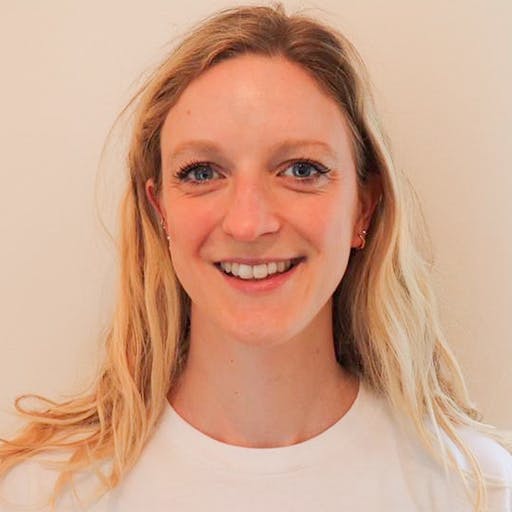

While type 2 diabetes isn’t curable, there’s increasing evidence that it’s possible to put it into remission. Here’s what we know so far.
How common is type 2 diabetes?
Recent figures estimate that 4.7 million people in the UK have type 2 diabetes. And this number is climbing. A huge driver behind this is largely due to increasing obesity rates — 3 in 5 adults in the UK are overweight or obese. And while not every case of type 2 diabetes is caused by excess weight, it’s the single greatest risk factor for developing the condition.
So with these figures in mind, it’s promising that emerging evidence points to a way to reverse type 2 diabetes.
You can check your risk of prediabetes and diabetes by using an Hba1c blood test.
What does it mean to reverse diabetes?
If you manage to reach and hold normal blood sugar levels without medication, you’ve reversed type 2 diabetes — also called putting it into remission.
This isn’t the same as a cure, as type 2 diabetes is an ongoing disease. But it does mean you’re much less at risk of the potential complications of diabetes, like heart disease and nerve damage. And you don’t need to worry about taking medication.
Keep in mind that type 1 diabetes can’t be reversed. This type of diabetes is an autoimmune condition and has nothing to do with weight.
How do you reverse diabetes?
As mentioned, carrying excess weight is the greatest single risk factor for developing type 2 diabetes. So it makes sense that weight loss might reverse it. Current research is looking into the different types of weight loss methods for reversing diabetes — mainly low-carbohydrate or very-low-calorie diets.

Low-carbohydrate diet
Following a low-carbohydrate diet to manage diabetes is nothing new. Dieticians have been advising this approach for a number of years. And it‘s helped reverse diabetes for some people.
But there are some downsides to this approach. It doesn’t take into account your culture, income, and your way of eating, so it’s not suitable for everyone. And a poorly-planned, low-carbohydrate diet can be low in important nutrients — like fibre and essential vitamins. So you should never try this without the support of a dietitian.
Very-low calorie diet
This approach involves mainly a liquid diet of about 800 kcal a day for about 3 months. When this diet was initially trialled with almost 300 people, more than half managed to reverse their diabetes. Importantly, this was followed by a less restrictive diet under the guidance of a dietitian. If you were to go back to your usual eating pattern and put weight back on, your diabetes would return.
This is clearly an extreme approach. It’s challenging, won’t suit everyone, and you can’t do it without professional help. But initial results have been so promising that the NHS is trialling this in people recently diagnosed with diabetes. If this approach is successful, it could also save the NHS a lot of money — about £10 billion a year is spent treating diabetes.
Exercise
A number of people have successfully reversed their diabetes using a combination of regular exercise and healthy eating. Exercise also has many other benefits, like lowering your risk of heart disease.
Surgery
In more extreme cases, gastric bypass surgery has been shown to be an effective way to help reverse type 2 diabetes. But this will change how you eat forever, and you’ll need nutritional supplements for the rest of your life. So it’s a last resort.
Overall, there are a number of approaches that might help you reverse your diabetes. But keep in mind that weight loss isn’t a silver bullet. Even if you manage to lose a lot of weight, it’s not guaranteed that you’ll go into remission. On the plus side, losing excess weight can have many other health benefits.
Conclusion
If you have type 2 diabetes, these approaches might help reverse it. But it’s really important to talk to your doctor before trying anything like this. And if you do manage to go into remission, regular follow-ups are really important to make sure you haven’t become diabetic again.
Currently, close to a million people have undiagnosed type 2 diabetes. Being really thirsty, feeling more tired than usual, and losing weight without trying, are common signs that you might have it. If you have any symptoms or are worried, you should see your GP to get tested.
Davies, M. J., D’Alessio, D. A., Fradkin, J., Kernan, W. N., Mathieu, C., Mingrone, G., ... & Buse, J. B. (2018). Management of hyperglycaemia in type 2 diabetes, 2018. A consensus report by the American Diabetes Association (ADA) and the European Association for the Study of Diabetes (EASD).Diabetologia,61(12), 2461-2498.
Diabetes UK (2018). Treating your diabetes: Diabetes remission. Retrieved 24 July 2020 from https://www.diabetes.org.uk/guide-to-diabetes/managing-your-diabetes/treating-your-diabetes/type2-diabetes-remission.
Lean, M. E., Leslie, W. S., Barnes, A. C., Brosnahan, N., Thom, G., McCombie, L., ... & Rodrigues, A. M. (2018). Primary care-led weight management for remission of type 2 diabetes (DiRECT): an open-label, cluster-randomised trial. The Lancet, 391(10120), 541-551.
